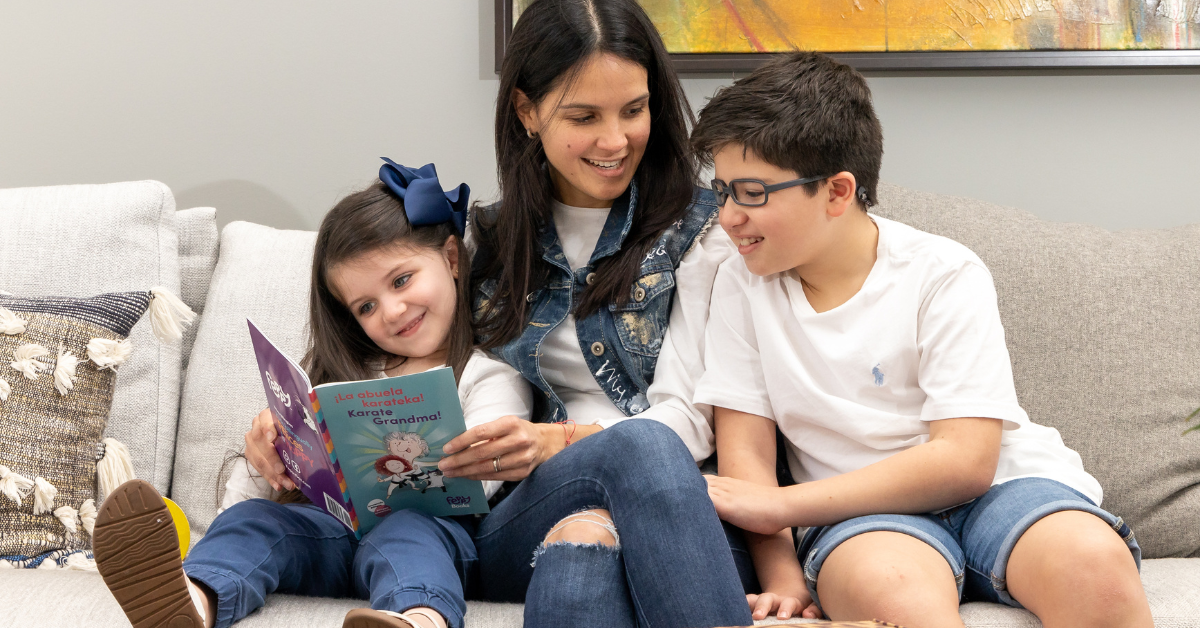
10 Reasons to Raise a Bilingual Child
Discover these 10 compelling Reasons to Raise a Bilingual Child and embark on your child's bilingual journey today!
1. Boosts self-confidence
Simply setting the goal to learn a new language and meeting the milestones along the way can boost self-confidence. Taking action to meet your goals shows that you can do what you put your mind to even if it seems challenging. And with language learning especially, you can acknowledge the small steps in your learning process. As the language builds on itself, it’s easier to see the steps in your progress as you move from learning words to putting sentences together to learning to write and have a conversation with someone in the new language. Seeing your accomplishments give a direct bump to your confidence.
2. Deepens connections to family’s cultural backgrounds
Not only does learning a second language help children learn more about the world as a whole, it allows for them to dig into their personal backgrounds as well. When a child can communicate with older family members in their native tongue, it shows a deep respect for their history and can be a beautiful gift. When children can speak in their family’s language, they can more deeply access shared experiences, family stories, cultural references, documents, inside jokes, and literature/entertainment.
3. Opens opportunities and career paths
Learning a different language opens the doors to meeting new people and having new experiences. When you encounter someone who speaks the language you’re learning, they appreciate being able to speak in their native language AND that you took the time to learn. It shows a curiosity and interest that others appreciate and respect. Language also gives a competitive edge in career. You can work with more ease in a global marketplace when you can speak and understand the languages.
4. Expands exposure to cultural diversity
Foreign language study expands the mind of the learner to be more accepting and respectful to those who are different. Learners develop a positive attitude to others and a curiosity to know more about different cultures. By having a second language, children tap into an appreciation for differences and more tolerance for others.
5. Increases cognitive abilities
Learning a new language literally alters the brain structure. When you know two languages it is always having to decide between how to respond in different situations. Your brain is better primed to focus attention and choose how best to respond so your brain is rapidly processing and inhibiting your responses.
6. Enhances memory and creativity
Research shows that bilingualism improves memory and cognition. And the benefits extend into old age as well. Cognitive decline is less and memory retention is greater with people who are bilingual as they age. Creativity is dependent on the brain’s ability to focus and bilingualism requires specific focus on how to reply and which language to use in the moment.
7. Develops tolerance
Children who are bilingual are not only more open to understanding and appreciating differences, but they are also open to tolerance around normal biases.
8. Improves focusing and multitasking
Bilingual brains are constantly having to choose what language to communicate in. Whether to respond in English or Spanish. Which word to use. The brain is always moving between languages and it naturally leads to more focus and greater multitasking. This leads to strengthened executive functioning, a higher-level cognitive skill that impacts focus, planning and the ability to multitask.
9. Strengthens communication skills
Research has shown that bilingual children and even children who simply grew up being exposed to two languages, grow up to be better communicators. And it’s not just because they can speak and understand two languages. They are better at following the meaning of stories and seeing the perspective of another speaker. This means that they are better at picking up on the intended meaning and also communicating their meaning in a better way too.
10. Helps form well-rounded personalities
When your child feels confident, connected to their family, better able to communicate, and more tolerant and open to new experiences, ideas, and types of people, that’s the definition of well-rounded! All the benefits outlined above give children an edge in a global community.
And we know that if children experience positive emotions and fun during learning, they are better able to retain the lessons. Like the stories and games in each of our subscription boxes, kids don’t even realize that they are learning. They just feel happy reading and playing with a parent. But behind the scenes it’s multiplying their ability to learn and understand.
About Feppy
Feppy is an award-winning creator of bilingual Spanish & English books, games, and learning toys for kids.
Follow along by signing up for Feppy emails!
